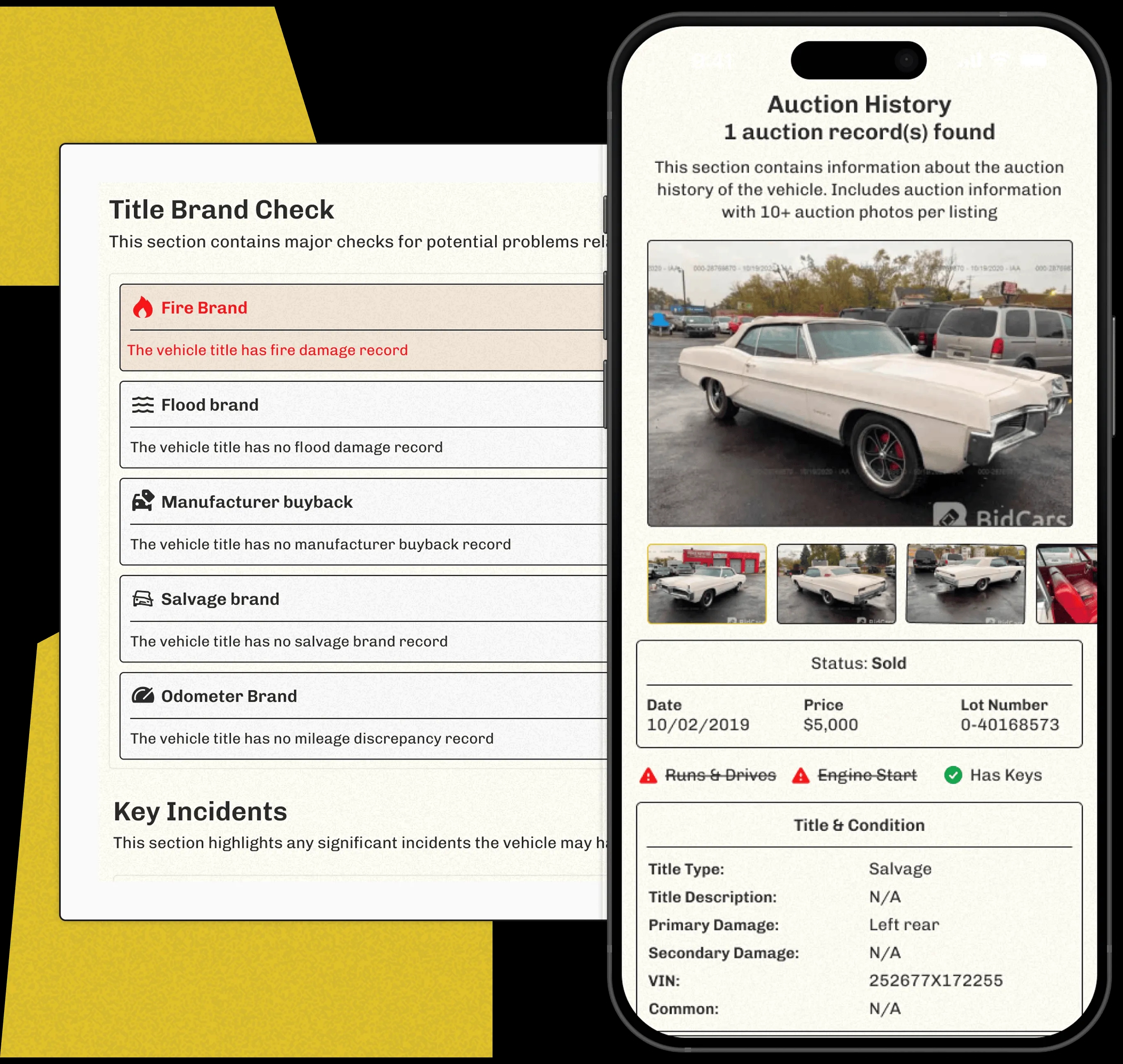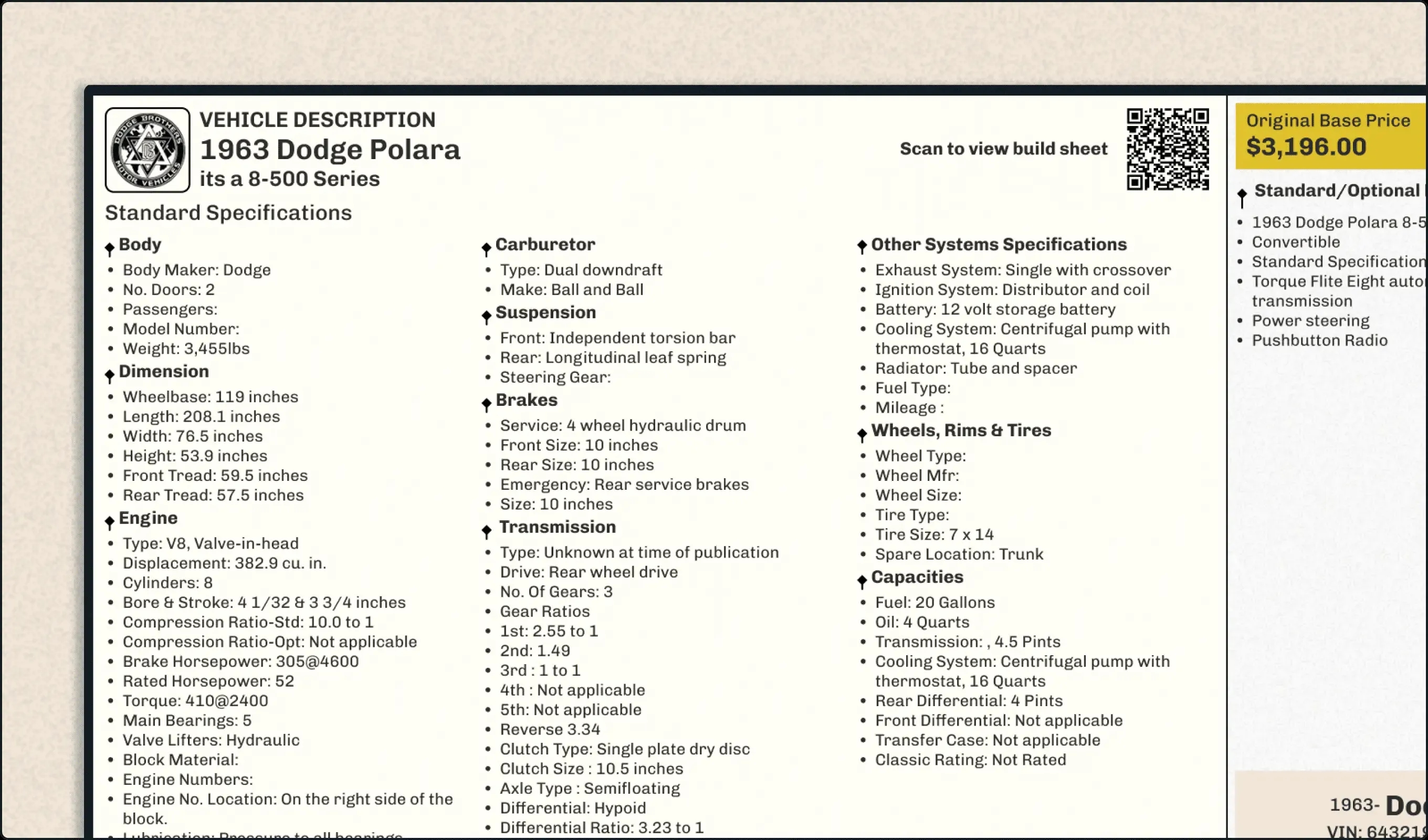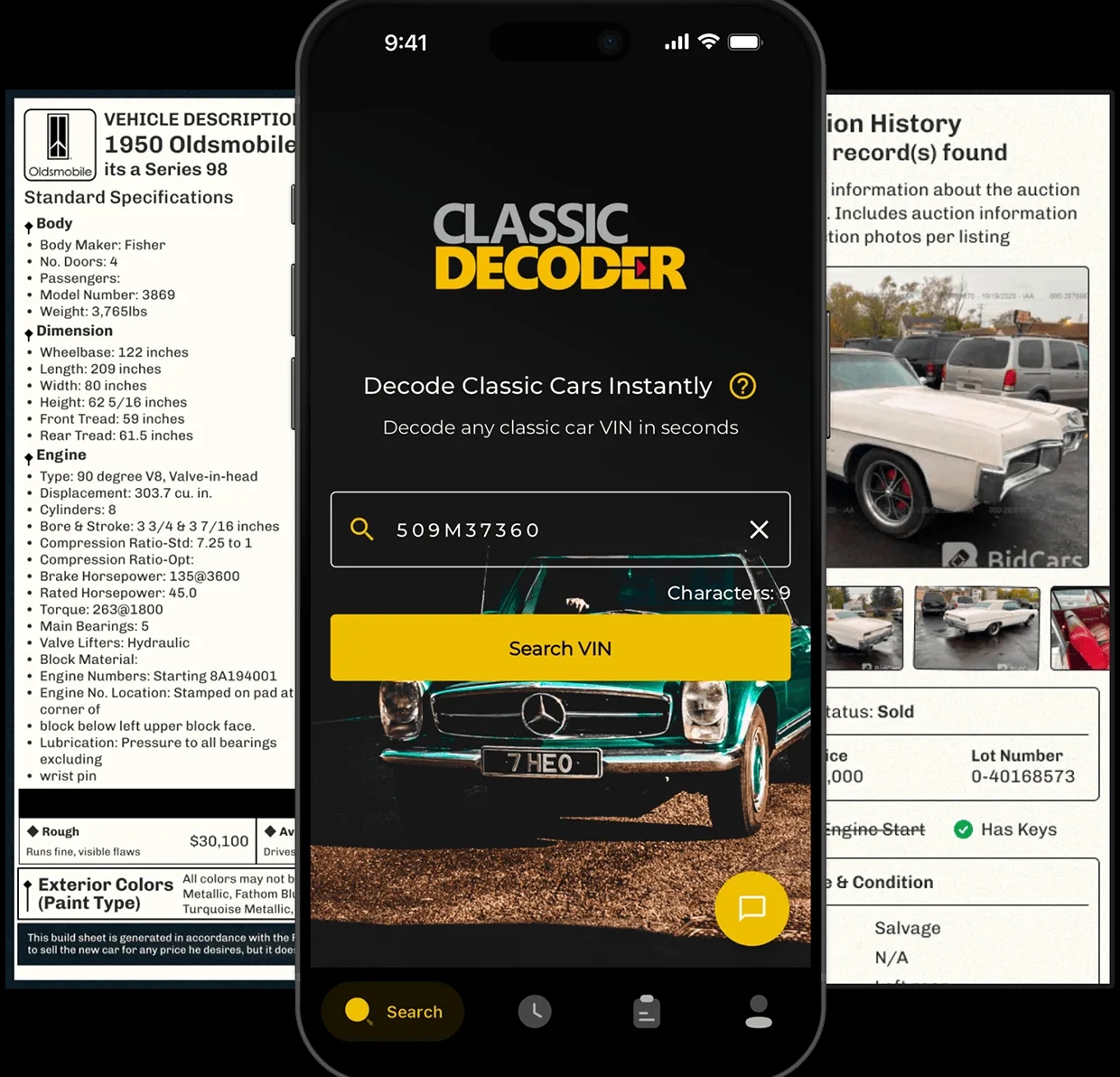1958 Plymouth Fury
The 1958 Plymouth Fury: A big, flashy finned beauty! Its bold design was a standout, cementing its place in '50s car culture. Though not a top seller, its iconic look – those fins! – and appearance in Christine made it legendary. A true classic muscle car ancestor.
Decode Classic VINs to Get Vehicle History Report and Build Sheet
An Icon of Automotive History: The 1958 Plymouth Fury
The 1958 Plymouth Fury isn't just any car—it's an emblem of a golden era in American automotive design. With its iconic fins and muscular horsepower, the Fury drove straight into the hearts of enthusiasts. But what is it about this car that has made it such a lasting icon?
The answer lies in its rich history and its intricate connection with pop culture, especially through Stephen King's "Christine," where it came to life as a sinister character. It represents a blend of innovation and storytelling—a combo that car buffs simply can't resist.

1958 Plymouth Fury Models:
Select the vehicle's model to see the correct data for it.
How Much is Plymouth Fury Worth?
Original MSRP :$2,808.00
Outstanding
Clean
Average
Rough
1958 Plymouth Fury Specs
Interested in buying a classic car or selling one?
Access detailed history reports for classic vehicles from hundreds of manufacturers.
- Accident Records
- Theft Records
- Loan & Lien Information
- Auction Information
- Salvage Information and more

Production and Specifications
Let me tell you, back in the day, the Fury was a big deal. Only 7,438 units of this model rolled out, which adds to its allure today. It was the top-of-the-line for Plymouth in the '50s and only came in one color—sandstone white with flashy gold accents. Under the hood? A roaring 318 cubic-inch engine pushing out 290 horsepower. Not something you'd find every day, right?
Learn more about a classic car: Get Build Sheet by VIN.
Access reproduced classic build sheets to learn more about your classic vehicle details.
- Standard Specifications
- Original Base Price
- Standard & Optional Equipment
- Exterior & Interior Colors
- VIN ID & Location description

Cultural Impact and Legacy
Stephen King's 1983 novel "Christine" played a huge part in reviving interest in the Fury. The car transformed into a mythical character, a malicious and living entity that captured imaginations everywhere. From novels to films and even video games, this role cemented the Fury's place as a pop culture icon【4:1†file-NcSuCLe4pd6krvRLR6Vq86】.
The Fury in the 1950s Automotive Landscape
The late '50s were a time of optimism and heavy metal. People were looking for lifestyle cars that showed off not just their financial muscle but also their style. The Fury fit right in with its flamboyant design and futuristic footwork, standing out in an era obsessed with speed and innovation【4:1†file-NcSuCLe4pd6krvRLR6Vq86】.
1958 Plymouth Fury Gallery




Interested in Buying or Selling a Classic Car?
Now, if you're thinking about buying or selling a classic car like the Fury, don't underestimate the power of paperwork. A good vehicle history report or a car build sheet is essential. Here's why:
Accident Records
Theft Records
Loan & Lien Information
Auction Information
Salvage Information and more.
Need to dive deeper? Check out Classic Decoder for more info.
can make a significant difference in valuating classic vehicles. Whether it's a is essential for classic car identification. It's a little like Sherlock Holmes sleuthing—only for cars!
Popular Figures Who Own Classic Cars
Believe it or not, a lot of famous faces are seduced by the charm of classic cars. Let's drive through some of the most well-known figures and their prized possessions.
Steve McQueen
The "King of Cool" himself, Steve McQueen, had a soft spot for classic cars. Known for his roles in car-heavy movies like "Bullitt," McQueen owned a variety of collectibles, ranging from rare motorcycles to high-performance vehicles like his Ford Mustang from the film.
Jay Leno
Jay Leno's garage is like Disneyland for car lovers. His collection spans hundreds of vehicles, encompassing everything from vintage steam cars to modern hypercars. His interest in cars is deeper than just collecting; he's involved in restoration projects and often talks about the joy of driving these legends.
Jerry Seinfeld
Seinfeld can't quit cracking jokes about nothing, but his love for Porsches is something serious. With one of the largest collections of these German beauties, Seinfeld has become a known figure in the Porsche community.
Ralph Lauren
Fashion icon Ralph Lauren doesn't just design clothes; he's also got an eye for classic cars. His exquisite taste is reflected in a collection that features historic racers and timeless roadsters.
John Travolta
Travolta, known for his role in "Grease," is as fond of aviation as he is of automobiles. His love for flying and his appreciation for classic wheels add another layer to his glamorous mystique.
Patrick Dempsey
"McDreamy" from "Grey's Anatomy" is also a real-life race car driver. Dempsey's collection showcases his affinity for speed and precision, embodying the same traits that define his on-screen persona.
Classic VIN Decoder App |Now available on both Android and iOS!
At Classic Decoder, we believe that developing a mobile app is a great way to extend our classic car data solution hub to as many users as possible across the globe. Our app is built with users and precision in mind. It holds the key to unlocking the history and details of any retro car at your fingertips. It also comes with fascinating and user-friendly features that make it stand out from other mobile apps designed for this purpose.
The Classic Decoder app lets you decode and lookup any classic VIN in a flash. Access accurate vehicle information and history, make an informed decision faster, and buy and trade in classic cars with confidence.

Download The Classic Decoder App now.
Some unique features include:
- Support all classic VIN lengths from 5 to 13 digits
- Support classic cars produced from 1910 – 1980
- Online Garage features – to add and manage your vehicles
- 24/7 Customer Support
- Easy onboarding for first-time users
Explore Plymouth Fury from Other Years
Frequently Asked Questions
Well, the '58 Fury is pretty unmistakable, you know? It's got that iconic, swoopy tailfin design; those things are like, seriously huge! Plus, the overall styling is pure 50s Americana – think chrome galore, and a long, low profile. It’s a real head-turner, even by today's standards. They really nailed the aesthetics on this one; it’s a fantastic example of automotive design from that era. And of course, let’s not forget about the Fury name; it really evokes a certain something – the cool, powerful image of a classic muscle car, though it wasn't quite as powerful as some of its later iterations. You can’t miss one of these beauties; they’re quite unique.
Okay, so under the hood, things got interesting. You could have had a few different powerplants, ranging from a fairly standard 318 cubic inch V8 (that was the more common choice, mind you) all the way up to a pretty potent 361 cubic inch V8 if you wanted something with a bit more oomph. The 361, in particular, really could move; think of it as the muscle car's muscle car back then! Choosing the right engine was a pretty big decision back then – like choosing a major appliance – so, you gotta do your research, that's for sure!
Compared to other cars of its time, the Fury held its own, especially with the larger engine. It wasn't necessarily the fastest thing on the road, but it was certainly respectable. It wasn’t a drag strip king, but it'd get up and go pretty well; it was certainly a spirited ride. Think of it this way: it was a solid performer, a well-balanced car, not just a flash-in-the-pan showboat. Remember, this was before all the crazy horsepower wars really took off.
Like any classic car, especially one this age, there are potential issues. Electrical gremlins are common with age – that’s just par for the course with these older vehicles. Also, things like the fuel system and brake system can be troublesome, needing attention due to age-related wear. It's always a good idea to get a thorough inspection. Don't just take my word for it; find a trustworthy mechanic who specializes in classic cars. Trust me on that one, you don’t want to be caught off guard. You'll need some patience; maintaining these cars is a labor of love.
The value fluctuates quite a bit, depending on the condition of the car, its originality, and its specific features. A pristine, fully restored example can fetch a pretty penny, that's for sure; think of it as an investment, almost. But a car needing a complete restoration will be much more affordable, perhaps even a deal for someone willing to put in the elbow grease, so to speak. You gotta shop around and do your homework – classic car values change constantly. It’s similar to the art market, you know? Always check reputable sources to get an idea.

